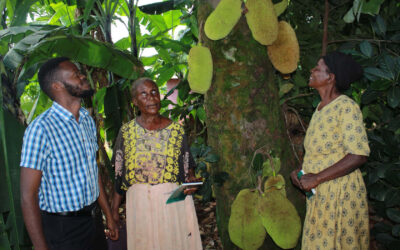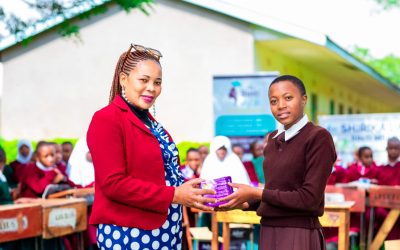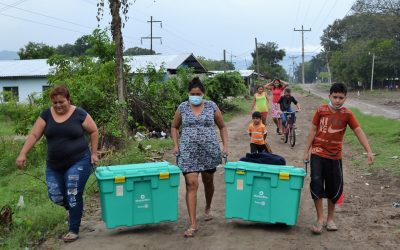At a recent presentation in Norfolk, Malcolm Goodson, President of Norwich St Edmund Rotary, presented a cheque for £1,600 to Lynne Symonds, the founder of the Wulugu Project.
Over the past two decades, the project has been working with schools in a deprived region of Northern Ghana.
For the occasion, Lynne, as Honorary Chief of three tribes, was dressed in one of her chieftain outfits plus her ceremonial spear.
The money was a joint donation made by the Norwich St Edmund Rotary and Derby Rotary in recognition of the role played by the Wulugu Project in not only providing children with an education, but also protecting them from the clutches of human traffickers and slave masters.
Combating this evil practice has been a significant aim of the Norwich Rotary Clubs ever since of one of its members visited two child slave rehabilitation centres near Delhi, India in 2001. This visit was followed by other colleagues visiting in later years
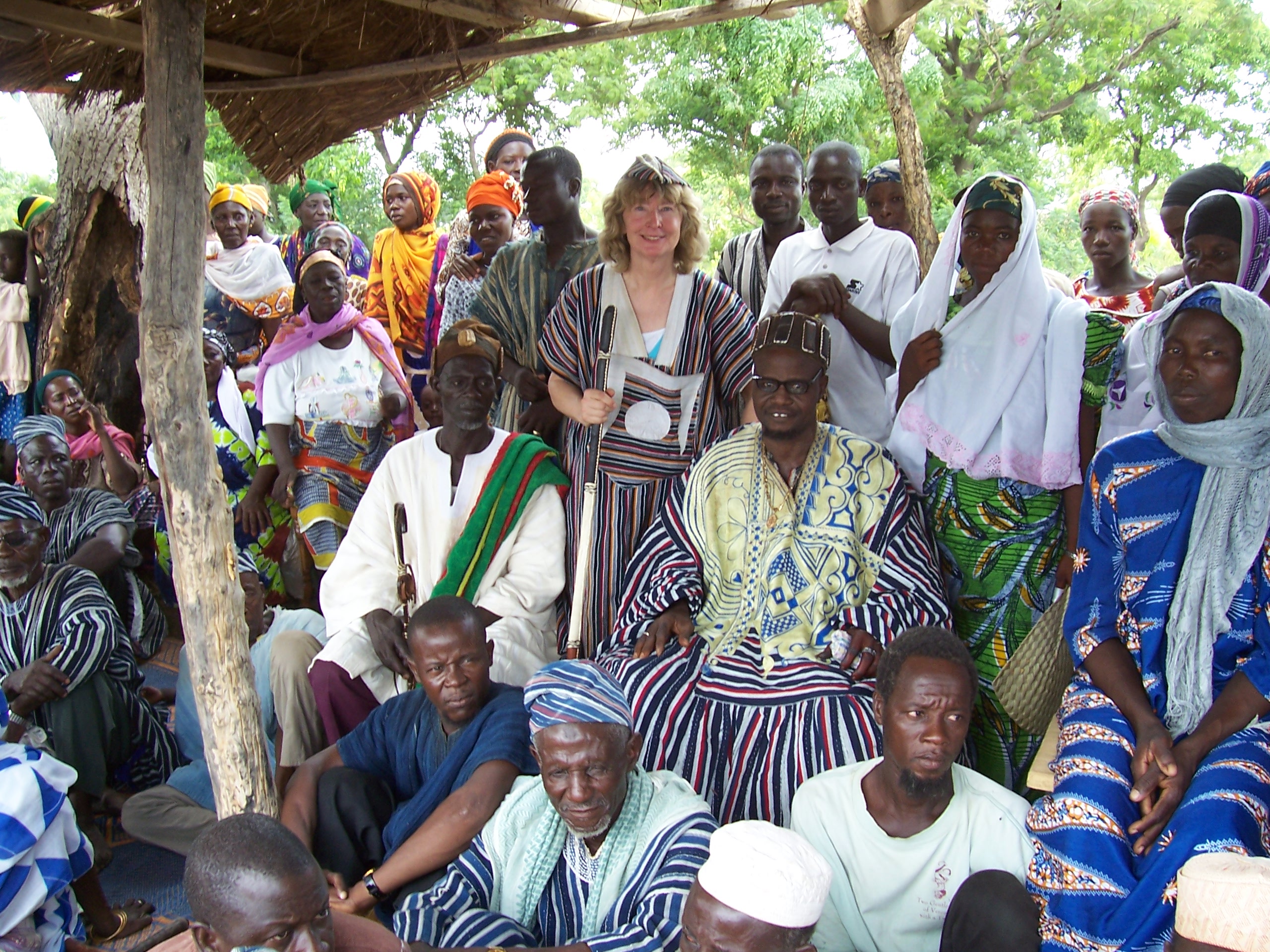

Lynne with Nagboo peaole, chief and spearman
Since then, the Rotary club has been in the forefront of the fight against modern slavery with Mark Little, the club’s International Service Committee Chairman taking a significant lead.
It has initiated and implemented many anti-slavery projects, both at home and abroad, lobbied its own service organization leaders to focus more on basic human rights, supported the work of anti-slavery activists and organizations and Mark was hugely instrumental in forming a global Rotary Action Group against Slavery.
The latest Global Slavery Index estimates that there were 133,000 people living in modern slavery on any given day in Ghana in 2016. Over 60% of that number relate to children.
According to the 2020 Trafficking in Person’s report, issued by the US State Department, traffickers subject Ghanaian boys and girls to forced labour in inland and coastal fishing, domestic service, street hawking, begging, gold mining, quarrying, herding and agriculture, including cocoa, which represents one quarter of the child labour in Ghana.
Combating this evil practice has been a significant aim of the Norwich Rotary Clubs ever since of one of its members visited two child slave rehabilitation centres near Delhi, India in 2001.”
One of the best ways to protect children from human trafficking and slavery is to ensure that they attend school.
If there are no schools in a community, it is likely that the children will end up spending time on the streets of their townships, thus giving open access to traffickers to exploit them into slavery.
Many people who are enslaved have been are tricked into unpaid forced labour and servitude.
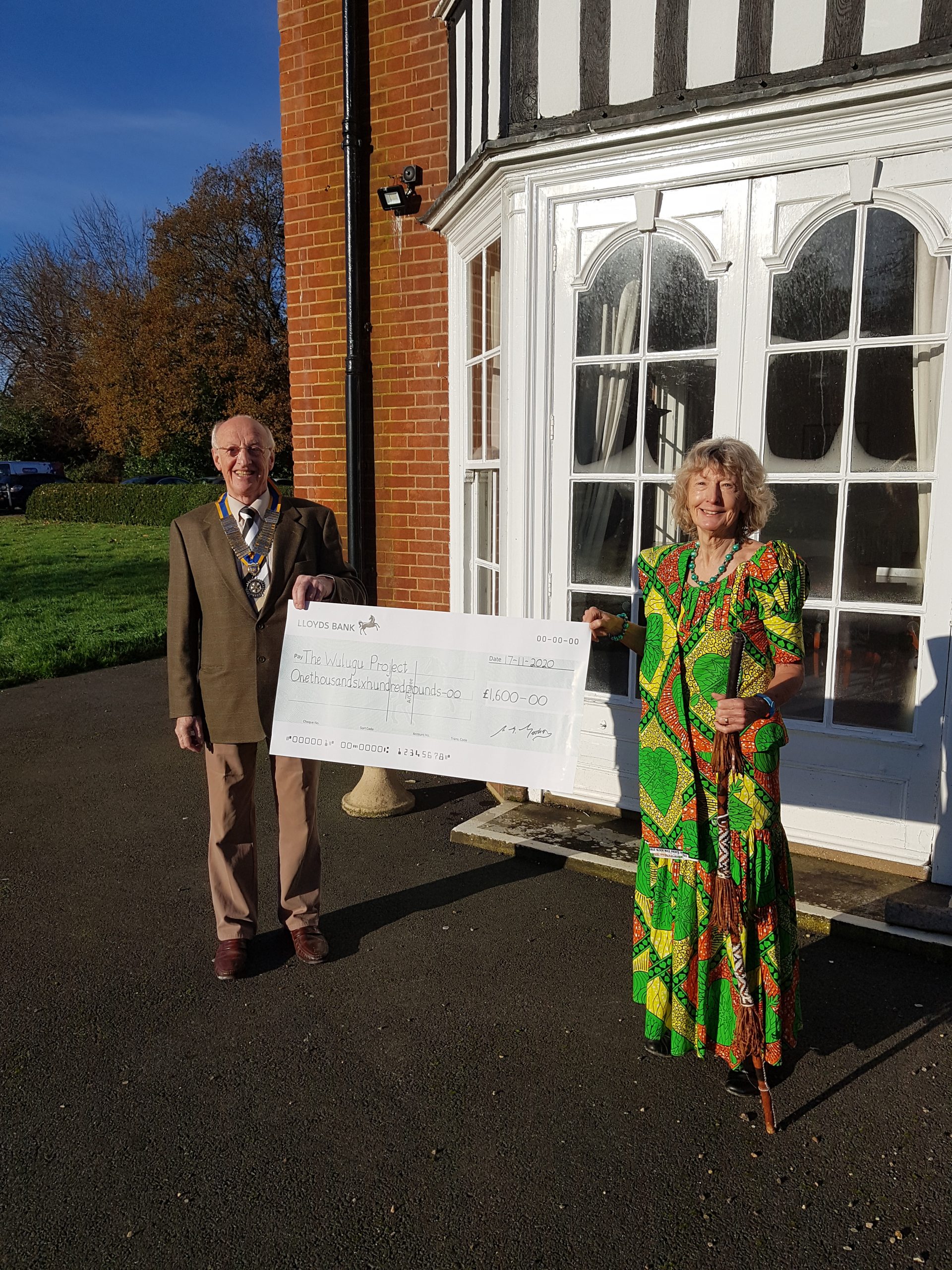

The con men of slavery know exactly how to lure the vulnerable into slavery, but against this deceit a little education goes a long way.
If effectively operated, schools will provide children with opportunities to appreciate the possibilities and dangers of entrapment.
Education will empower them with the knowledge to understand the true nature of the crime of slavery and will reduces the risk of young people from falling prey to potential traffickers.
The Wulugu Project, which provides schools with the ability to operate effectively, was founded in 1993 by Lynne Symonds, a science teacher at Hethersett Old Hall School and the wife of a Norfolk farmer.
The original objective of the Project was to provide books for a school in Wulugu, a village in Northern Ghana – a region where 60% of the population live in poverty.
Many people who are enslaved have been are tricked into unpaid forced labour and servitude.”
When Lynne discovered that only 5% of women in Ghana could read or write, she determined to help further, realizing that lack of access to education robs girls of the very real advantages that decrease their vulnerability to trafficking.
The successful school books initiative was soon followed by the construction of a hostel to keep 120 girls safe chiefly at school.
Since then, the project has been run by a small team of volunteers based in Norfolk, helped by skilled active supporters throughout the UK.
However, the major work is carried out by a team of Ghanaian volunteers whose deep understanding of the real needs of the local communities and culture. This ensures that the project tackles the greatest needs and make the greatest long term difference, all at an incredibly low cost.
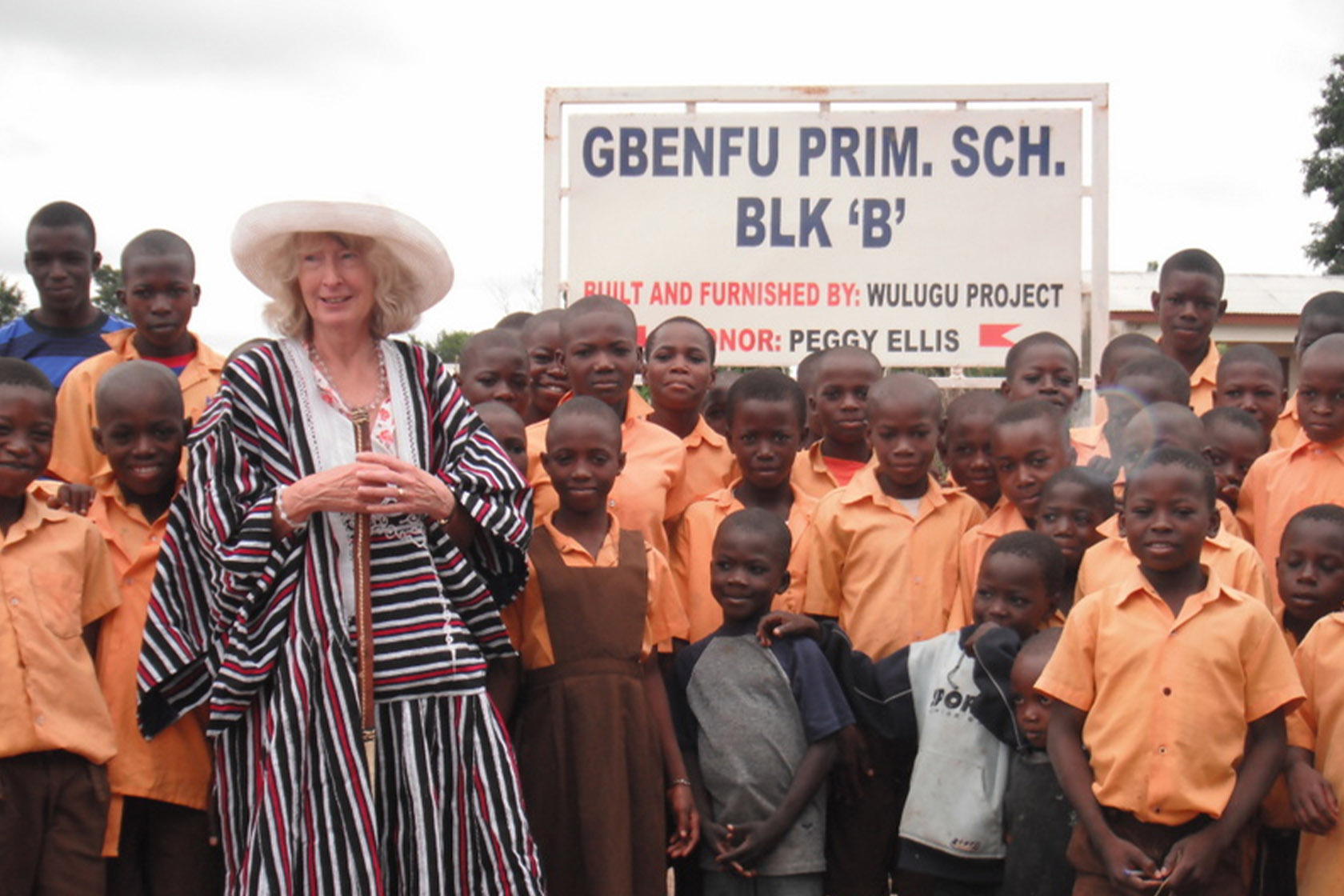

When Lynne discovered that only 5% of women in Ghana could read or write, she determined to help further.
During the last two decades, the project, with the support and backing of the local chiefs, has built or renovated 40 remote village schools, improving the lives of over 400,000 girls.
In these schools, the girls stay and successfully complete a six-year course.
To encourage teachers to stay and work in the most remote villages, the project has also built teacher quarters which provide basic safe rooms for teachers, especially female teachers.
For her work in Northern Ghana, Lynne Symonds has received many accolades, including three honorary chieftaincies of tribes as a reward for her effective interventions in the region.
Communities in the region credit Wulugu as the most effective charity in terms of helping them to improve education in ways that work for their people as well as protecting the children from being trapped into a life of slavery and servitude.
Former UN Secretary General Kofi Annan said “There is no trust more sacred than the one the world holds with children.
“There is no duty more important than ensuring that their rights are respected, that their welfare is protected, that their lives are free from fear and want and that they grow up in peace”
For more information: www.wulugu.co.uk








